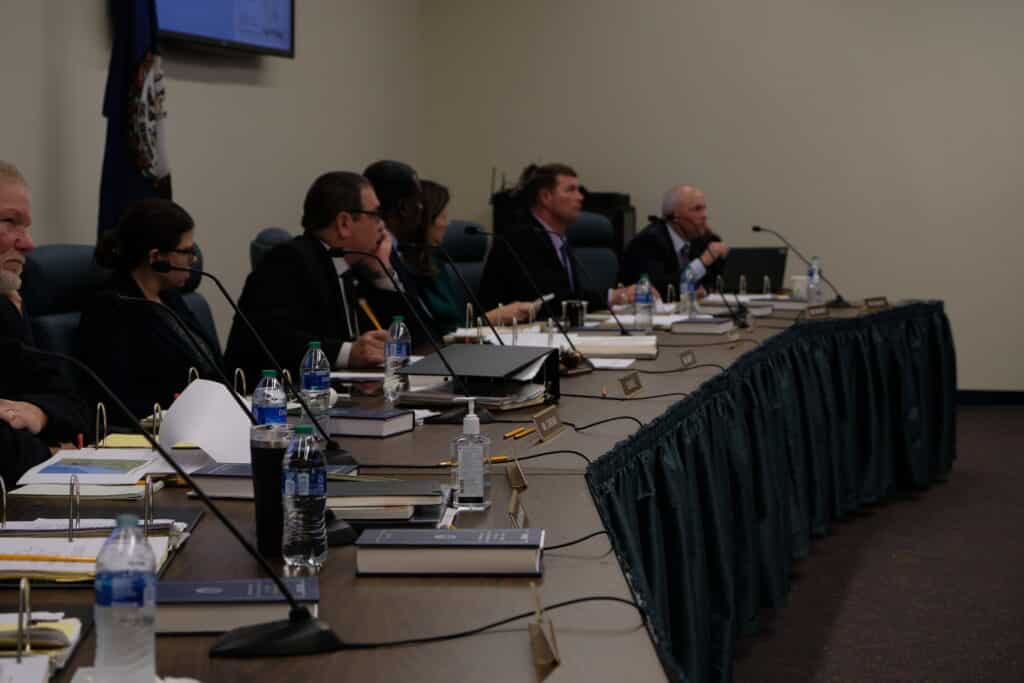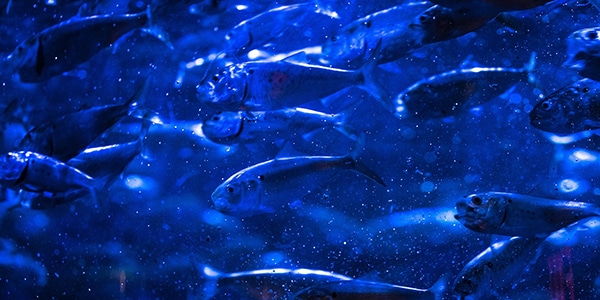I attended the Virginia Marine Fisheries Commission (VMRC) meeting last week to provide public comment on changes to Virginia’s Atlantic menhaden regulations proposed by Governor Younkin’s administration in response to ongoing net spills and user conflicts. The proposed regulations included:
(1) a one-mile purse seine buffer along Virginia’s Chesapeake Bay shoreline to reduce the likelihood of net spills and user conflicts
(2) a ½ mile purse seine buffer on both sides of the Chesapeake Bridge Tunnel to reduce user conflicts
(3) implement purse seine holiday closures to minimize the possibility of net spills during peak tourism holidays.
This regulatory proposal represented several months of discussions between stakeholders and the Youngkin administration after several net spills this summer, including one that resulted in 12,000 pounds of dead red drum bycatch, wreaked havoc in the bay and along its eastern shore beaches. Although the recreational fishing community thought the proposals could have gone further to address user conflicts and net spills from purse seining in shallow near shore habitats, we supported it as a first step common-sense regulatory approach.

A.J. Erskine, far right, speaks as a member of the Virginia Marine Resources Commission at a meeting Tuesday. (Charlie Paullin/Virginia Mercury)
The meeting was well attended, standing room only, in a tightly packed and sweaty VMRC meeting room that was certainly undersized for the crowd in attendance. Public comments during the hearing were balanced between support from the angling and tourism industry and opposition from the commercial fishing industry. Reduction fishing industry leadership talked about jobs, their stewardship, history of being cooperative players and that it’s unfair that Omega Protein continues to get villainized. That was interesting testimony for two reasons, (1) it was in direct conflict with the testimony I was about to give based on my knowledge and experience in this fishery and (2) I question whether it adhered to the sworn oath to tell the truth that is required of each speaker immediately prior to their testimony. So, let’s look at the truth and the facts to see if the criticism of Omega Protein is fair and justified.
I just googled “Omega Protein environmental laws” and the first link that appears is from the U.S. Justice Department and reads “Omega Protein companies agree to pay $1 million to resolve allegations they misrepresented compliance with environmental laws to obtain a federal loan”. The second link, also, from the U.S. Justice Department, “Fish Processing Company, “Omega Protein, Inc.” sentenced for environmental crimes”. I think it’s safe to say if the DOJ considers your company’s actions to be criminal, you’re probably better defined as a villain than a hero, but let’s take a look at the other aspects of their testimony because everyone deserves the opportunity to learn from their mistakes.
However, In 2019, despite warnings from VMRC about the pace of reduction fishing landings within the Chesapeake Bay (see PDF pages 20-21), Omega Protein bullishly exceeded the Reduction Fishery Bay Harvest Cap forcing the state of Virginia out of compliance with the Atlantic Coastal Fisheries Cooperative Management Act.
Unfortunately, I was not able to rebut Omega Protein’s testimony with these important facts during Tuesday’s Public Hearing because the VMRC Commissioner requested that all testimony specifically pertain to net spills and user conflicts, and I respected that request. However, that forced an assumption that all nine VMRC Commissioners knew and cared about Omega’s history of violating laws and regulations. Their next action was about to prove several commissioners did not.
After hours of public comment on Tuesday morning, VMRC returned from a short lunch break and swiftly turned the regulatory proposal to address net spills and user conflicts into a simple memorandum of understanding between the Menhaden Commercial Fishery and VMRC, which VMRC council warned does not carry the force of law. In other words, the passed proposal, which was approved with a 5-4 vote, relied on a pinky promise that Omega Protein will chart a new path of cooperation without any legal obligation to do so.
Trust is earned, not given, and it’s laughable to ask law abiding Virginians to trust that Omega Protein will voluntarily follow a memorandum of understanding on a proposal they vehemently opposed. In one of the more baffling comments after the hearing, Omega Protein leadership told the Virginian-Pilot, “You don’t get to stay in business as long as we have by breaking agreements.” Perhaps the distinction is that Omega Protein does not view laws and regulations as “agreements.” Legal experts, and conservation-minded members of the public, would likely disagree.
Unfortunately, we can only hope at this point, that if Omega Protein is tired of being treated like a villain maybe they should start taking actions that actually support their testimony of cooperation, stewardship and conservation heroism.
Share This Article, Choose Your Platform:
Recent Posts



